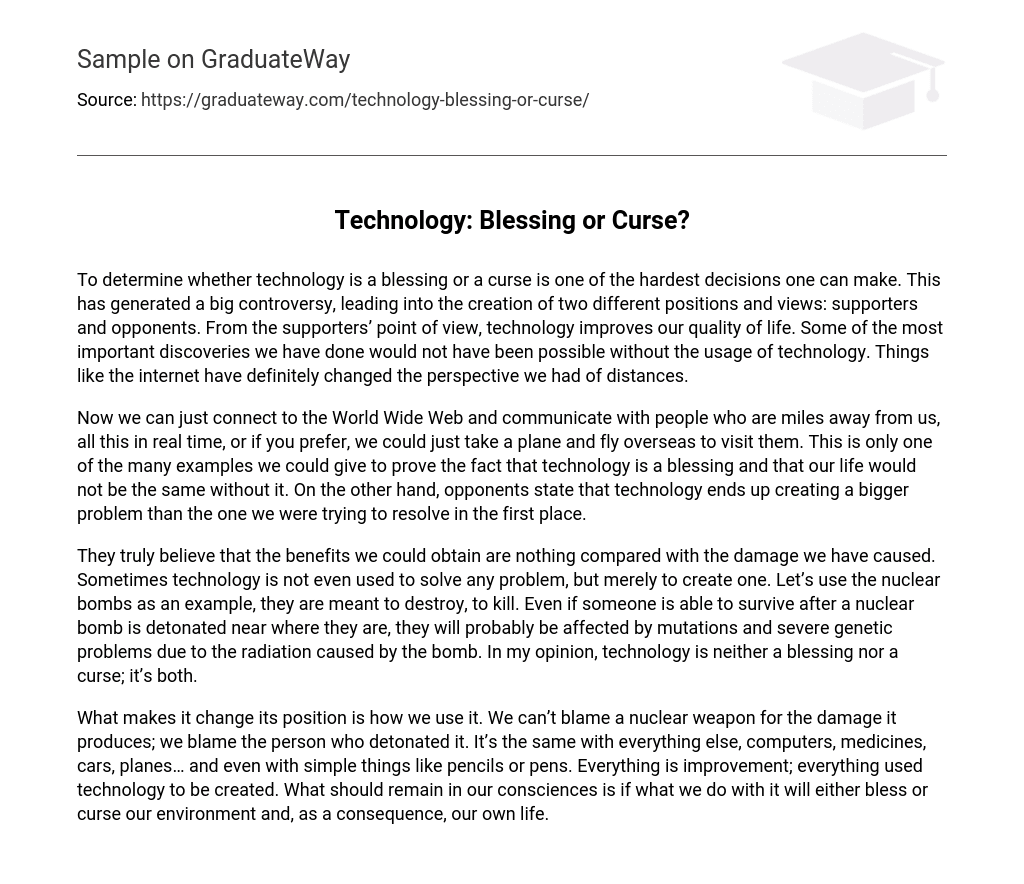To decide if technology is a positive or negative force is a challenging task, causing much debate and resulting in two distinct perspectives: those in favor and those against. Supporters argue that technology enhances our standard of living, enabling groundbreaking discoveries that would have otherwise been impossible. For example, the internet has greatly altered our perception of distances.
Nowadays, we have the convenience of connecting to the Internet and interacting with individuals who are geographically distant in real time. Alternatively, we could opt for air travel to personally meet these people overseas. This is just one illustration among numerous others that demonstrate the invaluable nature of technology and how it has significantly transformed our lives. However, detractors argue that technology often exacerbates issues rather than resolving them.
They firmly believe that the advantages we can gain pale in comparison to the harm we have inflicted. Occasionally, technology is employed not to resolve any issue, but simply to generate one. Take nuclear bombs, for instance; their purpose is annihilation, death. Even if someone manages to survive after being near a detonated nuclear bomb, they will likely experience mutations and severe genetic disorders caused by the bomb’s radiation. From my perspective, technology is neither solely a blessing nor purely a curse; it encompasses both aspects.
The way we use technology determines its impact. We don’t hold a nuclear weapon responsible for the damage it causes; we hold the person who detonated it accountable. The same applies to computers, medicines, cars, planes, and even everyday objects like pencils or pens. Every invention represents progress, as they all rely on technology for their creation. What we should consider is whether our actions with these inventions will bring blessings or curses to our environment and subsequently to our own lives.





